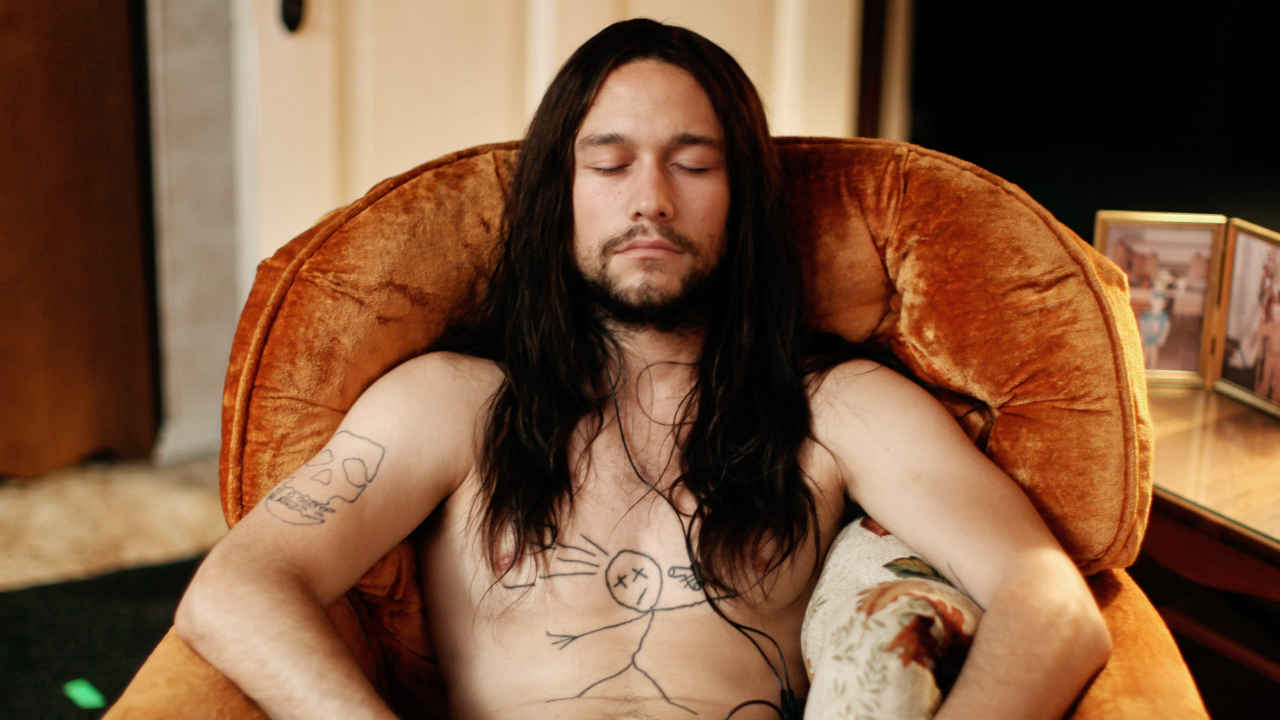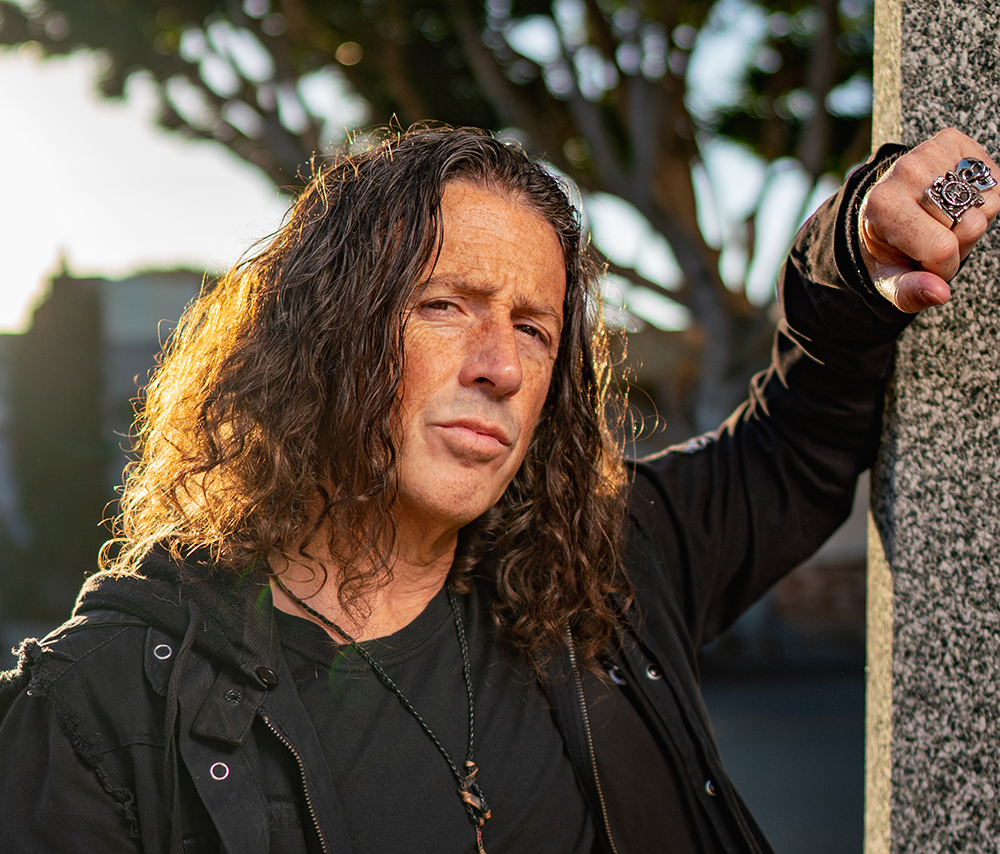For those in the metal community, being hailed as a “hesher” ranks among the highest of honours, even if – nay, especially when – the speaker intends it as an insult. Today the term refers to the most passionate and committed of metalheads, although it originated centuries ago with the Hessians – a bloodthirsty pack of German mercenaries hired by the British Empire to track down and slaughter colonists during the American Revolution. Savage and unrelenting, Hessians were the stuff of nightmares.
The most famous Hessian of all time is the fabled Headless Horseman – the ultra-spooky antagonist in Washington Irving’s The Legend Of Sleepy Hollow. Said horseman was a Hessian fighter, deprived of his head by a cannonball, who, in true Hessian fashion, just kept going. Over time, the term morphed into “hesher,” where it ultimately found a home as an adjective for raucous, long-haired, horn-throwing metalheads – the kind who shout “Slayer!” at weddings and who acquire a glazed, faraway look when people around them start talking about the Top 40.
In 2010, writer/director Spencer Susser released Hesher, a piercing drama starring Joseph Gordon-Levitt as the titular character. Bleaker than a clown’s funeral, Hesher centres on 13 year-old TJ, a luckless kid in a squalid Southern California town, who has just lost his mother in a fatal car accident. His father, evocatively played by Rainn Wilson (The Office), is hopelessly mired in depression and pills, leaving only TJ’s grandmother to take care of the two of them.
Picked on by bullies and utterly alone in his cheerless world, TJ hurls a rock through the window of an abandoned building, dramatically upending his life on the spot. Unbeknownst to TJ, said building houses a long-haired squatter known only as Hesher – a violent and nihilistic caricature of a metalhead, with tattoos of a gigantic middle finger on his back and a stick figure shooting itself on his chest. Grim as fuck.
As a security patrol descends on the scene, Hesher realises that the proverbial jig is well up and, now homeless, he turns up at TJ’s house and begins squatting there. It’s a thoroughly absurd plot twist, rendered all the less-believable by TJ’s father just letting it happen, while his grandmother begins caring for and feeding Hesher.
If we refer to the mythical Book Of Trite Old Movie Formulas, we’d expect Hesher to slowly reveal his dormant tender side, taking TJ under his wing and injecting life and happiness into his home. Instead, Hesher parades around the house in next-to-nothing, watches porn on the television, swears as if he’s getting paid to do so and generally avoids any and all opportunities to be of service to his hosts. He even watches a bully kick the ever-loving-shit out of TJ without jumping in. Without spoiling too much, events unfold with Dickensian cruelty until at last the characters find both purpose and connection.
Hesher is larger than life; he doesn’t walk, he swaggers exaggeratedly and throughout the film, he appears on screen along with a shotgun-sized riff from Metallica’s The Shortest Straw. It’s one of the funnier gags in a film that’s by turns heartbreaking, shocking, violent and occasionally uplifting. The Metallica reference, it turns out, is very intentional. In fact, both Susser and Gordon-Levitt have revealed that the Hesher character was inspired by none other than Cliff Burton, Metallica’s legendary bassist, killed in a bus accident in 1986.
Over the years, Susser has discussed writing the character with Burton in mind. In a 2011 interview with IndieWire, Susser explained, “I’d send [Gordon-Levitt] clips of Cliff Burton… one thing that I read about him was he used to wear bell bottoms in the ’80s and it was just out of style. Everyone gave him a hard time about it and he said this is what I wear, I don’t care what you think. He wasn’t interested in being a rock star, he wanted to make music, that’s all he cared about… he wasn’t about stadium shows, he was about music. So I think that’s what Hesher really liked about him.”
Without revealing their inspiration for Hesher, they sent the movie to Metallica, who loved it on the spot. In an interview with REEL JUNKIES, Gordon-Levitt explained, “Cliff Burton… was a big inspiration for Hesher. Which was why it was all the cooler when we showed the movie to Metallica – they actually dug it and they decided to let us use their music. And they don't let anybody use their music, but they dug this movie.”
Of Hesher’s inspiration, Gordon-Levitt shared that the band needed zero clues. “[Metallica] actually even brought up Cliff,” said Gordon-Levitt, “which meant a lot to me because we didn’t mention that to them. They said, ‘Oh yeah, He reminds us a lot of Cliff. We like this.’” They even allowed the film to use the iconic Metallica font for the film’s poster.
For Susser, getting the rights to Metallica’s music was as critical as casting the right actors and he had no Plan B. Fortunately, he didn’t need one. Speaking to Movieweb in 2011, Susser explained, “I didn't have a backup plan. I don't know if it was a struggle so much, but everybody told me that it was never going to happen. The Metallica songs are in the script, and everyone said, 'Yeah, you've got to take that out. They're not going to give us the music, and even if they did, we couldn't afford it.' I said, 'No, that's what it's supposed to be. That's what it is.' They said, 'Well, OK, we'll just change it later.' So I shot the film and cut the film and I put in those songs that I thought were the right ones and everyone said, 'You've got to take those out. We're not going to get those.' I said, 'How do you know?' I just kept pushing that it was right and, eventually, we sent the film to Metallica and I wrote them a letter and told them how I ended up there and why I thought it was important and they loved the film and basically gave us the music. They were awesome the whole time.”
The Hesher soundtrack includes Metallica’s The Shortest Straw, Fight Fire With Fire, Anesthesia (Pulling Teeth), Battery and Motorbreath and the official trailer is soundtracked by Battery. Check out the REEL JUNKIES interview with Gordon-Levitt and Wilson here (skip to 1:40 if you want to get straight to the Metallica chatter)

